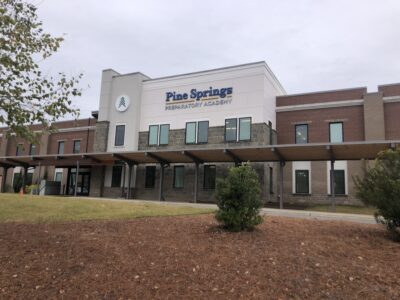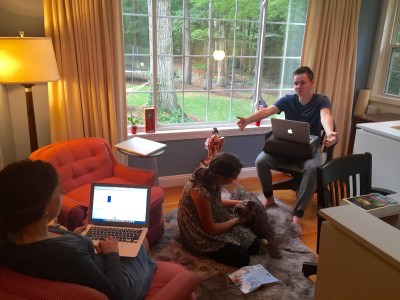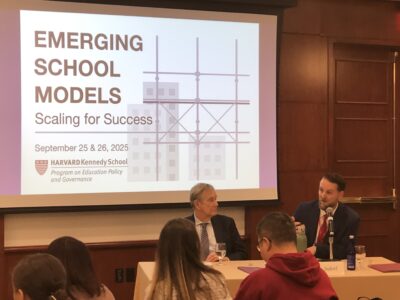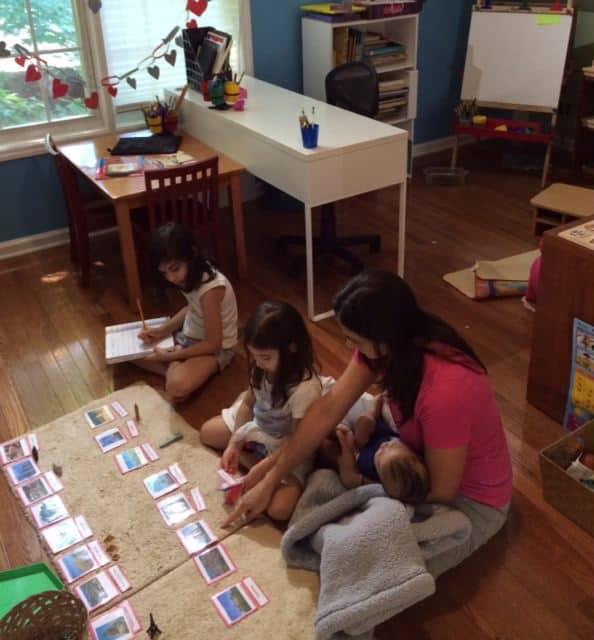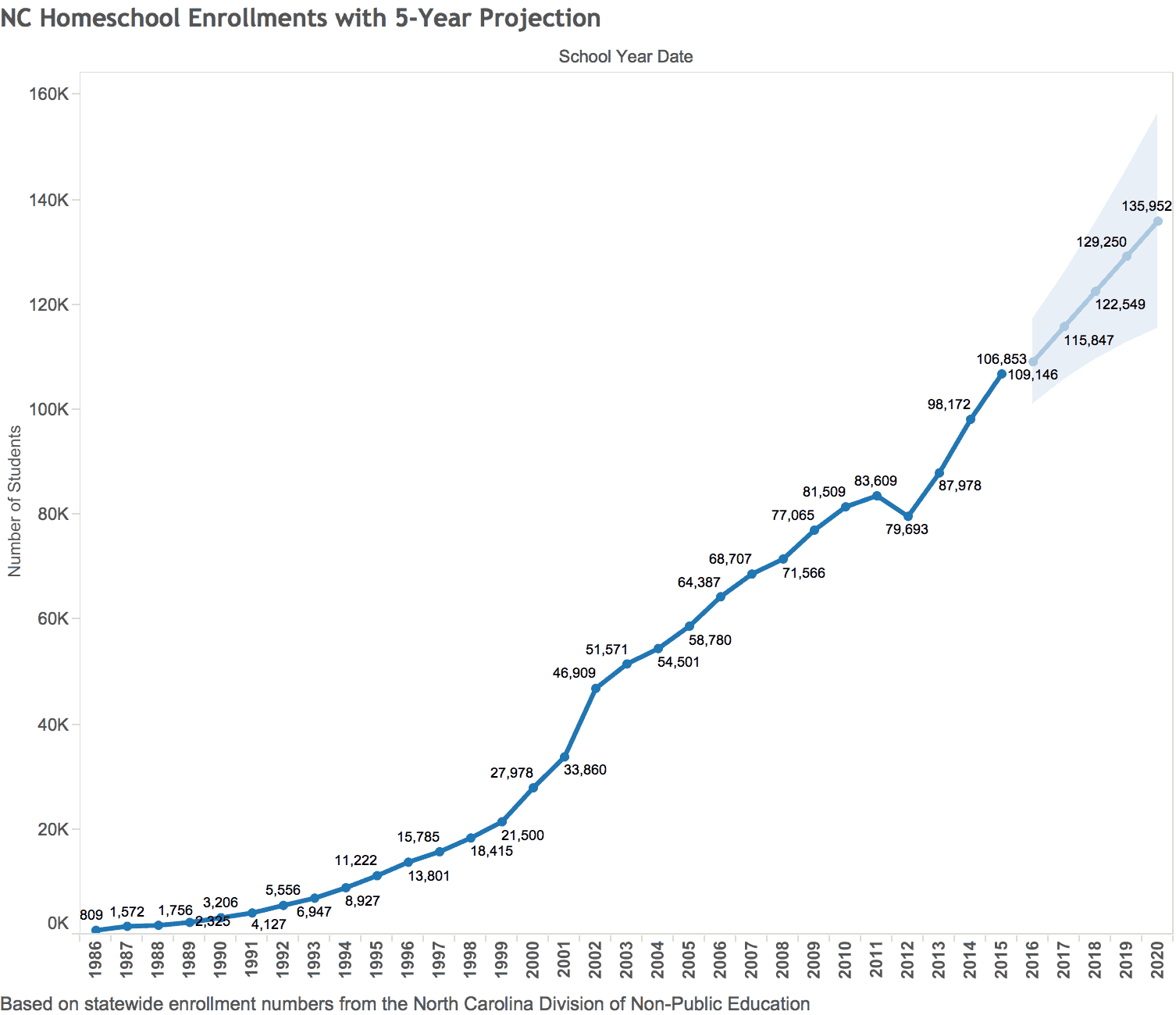“Homeschooling is one of those things that happened by accident for us,” says Jessica Alfonso-Baez, a mother of three. Alfonso-Baez, who is Cuban, moved with her family from Miami, Florida, to Cary, North Carolina, four years ago. “In Miami,” she says, “people don’t homeschool.”
Her perceptions about homeschooling began to shift toward the end of daughter Olivia’s first grade year at a private Montessori school. Olivia battled numerous food allergies, and “finding the right school that would keep her safe” had become emotionally fraught, says Alfonso-Baez. “Food is hard to control,” she notes.
As she began researching options including public school, safety worries were compounded by concerns over Common Core standards. Math seemed convoluted and tortuous: “You had to use algebra to solve two plus two,” says Alfonso-Baez.
Determined to make a change, Alfonso-Baez pulled Olivia out of school, finishing first grade at home and officially launching a homeschool in the fall of 2014 for second grade. Olivia’s little sister Gianna, age 4, joined in for pre-kindergarten.
Homeschooling has required both stamina and sacrifice. A nurse, Alfonso-Baez homeschooled her girls Monday through Friday and worked on weekends. Will she work this year? “We’re still trying to figure it out. I just had a baby! I may go back to doing a couple of shifts on the weekends, but not every week,” she says. One thing is certain: they’ll homeschool again. “We have fallen in love with all aspects of homeschooling,” says Alfonso-Baez.
Homeschooling numbers soar
For more North Carolina students, an old adage is proving new: there’s no place like home. As families merge house and schoolhouse, they testify to the viability of home education―a movement that has, over the span of three decades, transformed and restructured K-12 education in North Carolina.
Perhaps the clearest barometer of homeschooling’s appeal is this: in 2014-15, a record 9,194 new homeschools opened across the state. Not surprisingly, the number of homeschool students― an estimated 106,853 children―also reached an all-time high. State homeschool enrollments, released this summer by North Carolina’s Division of Non-Public Education, reflect a 9 percent increase since 2013-14 and an 82 percent uptick over the past decade. If trends continue, North Carolina could have close to 136,000 homeschool students five years from now.
Substantive growth is largely indicative of a shift occurring county by county. In 2014-15, homeschooling numbers rose in 92 of North Carolina’s 100 counties; enrollment declined in seven counties and remained unchanged in Northampton County. Wake County leads the state with 10,407 homeschool students―almost 10 percent of North Carolina’s total homeschooling population.
Nationally, homeschooling numbers are also rising. Dr. Brian Ray, president of the National Home Education Research Institute, says his latest estimate indicates that 2.2 million children are homeschooled in the U.S. “Homeschooling is a reasonable option to mainstream America now,” says Dr. Ray.
Are NC estimates too low?
Some experts believe the state may underestimate the number of homeschool students. DNPE reports its estimate is “based on random 2014-15 homeschool enrollment sampling and the actual number of homeschools”―averaging out to around 1.6 children per homeschool. That number seems low to Kevin McClain, president of North Carolinians for Home Education. NCHE interfaces regularly with 10,000 to 15,000 homeschooling families statewide, says McClain, and “many are larger families where the majority of kids are homeschooled.” NCHE suggests the number of homeschoolers may be as high as 170,000.
State officials use estimates to calculate enrollment because information submitted by parents varies. Parents opening homeschools that enroll children of compulsory school attendance age must register their homeschool with DNPE. But homeschooling parents are not obligated to report beginning or annual enrollment, or students’ gender.
Chris Mears, public information officer for the NC Department of Administration, which houses DNPE, explains, “There is not an exact number of homeschool students, because like with gender, this is voluntary information and many homeschools voluntarily withhold it.”
Mears continues, “When homeschools initially register with us or submit their enrollment voluntarily, we are able to obtain an average of homeschool students per homeschool in each county. We… determine each county’s average, and then using that number, average it for the whole state and the final number is attained.”
“The number of students per household has been fairly constant at 1.3 to 1.6 per household, statewide, for as many years as we have institutional knowledge,” Mears adds. “The exception was 1985 through 1989 when the office sent a staff person to every homeschool in the state, door to door. At that time there were 5,000 or less; now there are more than 68,000.”
Are more precise enrollment numbers possible? Yes, but precision would require a change―since the law doesn’t require parents to report enrollment―as well as agreement among stakeholders that such a change was necessary. Would a push for more stringent reporting requirements meet resistance? Possibly: the homeschooling community typically has not welcomed shifts toward increased state-level oversight.
Some states collect and compile exact enrollment numbers (Wisconsin, Virginia, and Nebraska are three that do); not surprisingly, annual reporting requirements in these states are stricter than in N.C. But in a number of other states―including Texas, Idaho, and Oklahoma―homeschooling is not monitored by a state education agency. Dr. Ray sums up the U.S. homeschooling landscape thus: “50 different states, 50 different laws.” In his view, North Carolina’s homeschooling numbers are among the “most reliable” nationwide.
Homeschooling growth: it’s elementary
While homeschooling is popular across the age spectrum in North Carolina, growth is most dramatic near the point of school entry. Since 2007, homeschooling enrollments have surged 229 percent for 6 year olds and 150 percent for 7 year olds. Last year 6-year-old enrollments jumped 16 percent and 7-year-old enrollments rose 15 percent.
What’s driving families to keep or bring young children home? Kevin McClain believes there has been a “resurgence” in the value parents place on unstructured learning. The notion that a less hurried approach to the start of formal education is beneficial for children, “has not prevailed in policy discussions,” says McClain, “but it resonates with many parents as very true.”
Overall, McClain says, “I rarely find anyone who can cite any one particular reason” for homeschooling. It is, he says, “more about a lifestyle shift―wanting something richer than what is perceived.”
For Alfonso-Baez, homeschooling has facilitated a lifestyle that is rich indeed. “Homeschooling,” she says, “has helped bring us back to how we really wanted to raise our family.”
Recommended reading
